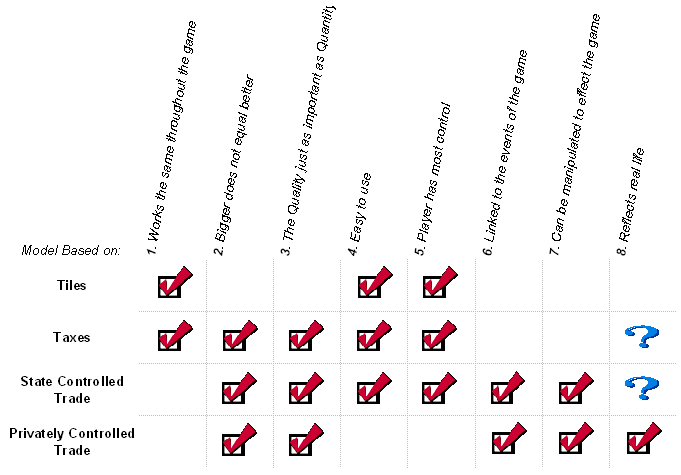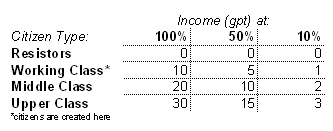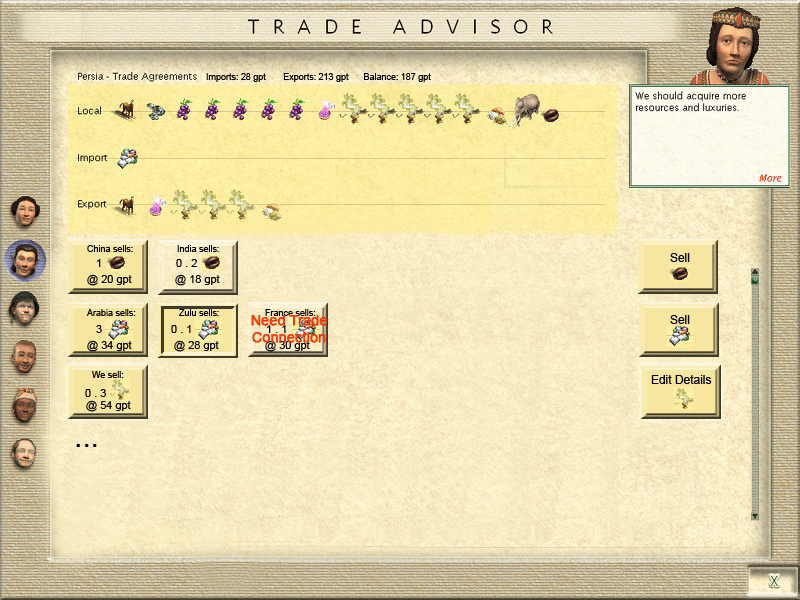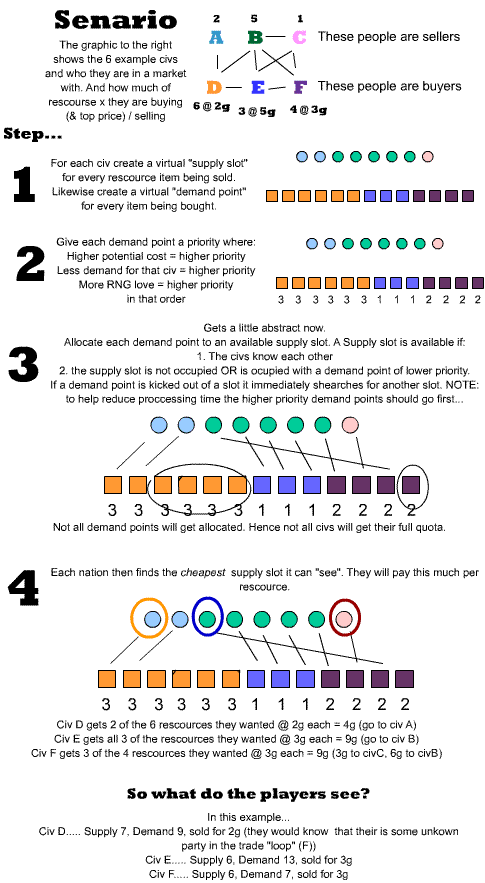Meleager
Stoned as a Statue
[size=+3] Meleagers Economic Model v3.1 [/size]
[size=-1] Version 1.0 of this model was on this post several weeks ago but has since been removed. Version 2.0 was this thread, created on the 7th July. Version 3.0 was updated on the 14th of August (Find Posts after this version). Version 4.0 is likely to form from your input. [/size]
[size=-1] Version 1.0 of this model was on this post several weeks ago but has since been removed. Version 2.0 was this thread, created on the 7th July. Version 3.0 was updated on the 14th of August (Find Posts after this version). Version 4.0 is likely to form from your input. [/size]
Comming Soon... New
header tags
with colour
This is now a modding suggestion...
Because I realize that some people dont have enough time to read through this entire model, here is a summary...
Spoiler Summary :
This economic model covers 3 areas - taxes, trade, and budjeting.
Taxes -> this is the primary way in which nations earn money. Their is a tax slider on the budget screen which allows a player to change the overall tax rate of their nation. However players have to be careful doing this because raising tax rates can make you people poorer reducing the overall income of you nation. The reverse is also true.
Trade -> there is a new resource model in which the amount of recourses you receive each turn is more important then simply having the resource. A complex trade system also exists which accurately mimics the real world effects of supply and demand, and changing markets.
Budget -> rather then just stockpiling cash nations must budget their income into various departments. This increases the strategy of the game phenomenally.
If this perks you interest I encourage you to read on. However, if you simply do not have time a simple "I like it" / "I dont like it" comment would be appreciated.
Taxes -> this is the primary way in which nations earn money. Their is a tax slider on the budget screen which allows a player to change the overall tax rate of their nation. However players have to be careful doing this because raising tax rates can make you people poorer reducing the overall income of you nation. The reverse is also true.
Trade -> there is a new resource model in which the amount of recourses you receive each turn is more important then simply having the resource. A complex trade system also exists which accurately mimics the real world effects of supply and demand, and changing markets.
Budget -> rather then just stockpiling cash nations must budget their income into various departments. This increases the strategy of the game phenomenally.
If this perks you interest I encourage you to read on. However, if you simply do not have time a simple "I like it" / "I dont like it" comment would be appreciated.
In detail...
To skip to the good stuff click Here.
Introduction
This is yet another economic model (for Civ V) for your reading benefit. This model is unique in that:
- It includes documentation of the process used to develop the model
- It includes details of how nations could spend money, not just make money
- It streamlines game play whilst adding more strategic depth.
Following are the sections of this thread. If you want a quick read skip to sections 2 & 3 only.
I am eager to hear your feedback.
-----------------------------------------------------
Money makes the world go round
The need for a better economic model
Currently in civilization economics have meant that war is the only way to win. Bigger Territory=> More money => Bigger Army => Bigger Territory This is not only unrealistic, but it denies players a chance to have many of the game experiences that they would like to have in civilization. It also means that there is no way to have any economic victory condition since a player would have reached domination before then. The Fact is that any economic model which is tied to terrain will always have this problem, even if some terrain tiles are worth more than others. Some people have tried to change this with ideas such as Corruption which punish large players. But this is both painful and unrealistic as not all countries have economic problems like Russia. The solution is of course a huge revamp of civilizations economic model.
Requirements of the economic model
Before we can create an economic model we need to figure out the requirements of such a model. The requirements of an economic model which I have formulated are:
- For simplicity, the system must work the same for a nation on the first turn as it does for a nation which rules the world
- Bigger must not equal better
- Quality must be just as important as Quantity
- It must be simple and easy to use (i.e. minimal micromanagement)
- Player must have control
- The economy must be linked to what is happening in the game (global economic situation)
- Players / Nations should have the ability (if they are smart enough) to alter the global economic situation
- The Economy should reflect real life (this is the hardest of all the objectives as in real life there are millions of people around the world micromanaging the economy everyday)
Everything bellow is based on reaching these goals.





 +3 (-1%)
+3 (-1%) !
! ! Heres hoping we can mod it in though 'cause, if I see an economic mod from you, you can bet that I will most likely download it
! Heres hoping we can mod it in though 'cause, if I see an economic mod from you, you can bet that I will most likely download it 
![Party [party] [party]](/images/smilies/partytime.gif)


